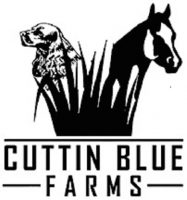 Senior dogs are more prone to become obese because they do not exercise as much as they used to, they have less energy, and their metabolism has slowed down with age.
Senior dogs are more prone to become obese because they do not exercise as much as they used to, they have less energy, and their metabolism has slowed down with age.
It is very important that you prevent your senior dog from getting fat, because once he does it is very difficult to lower his weight, and an overweight dog has an increased risk of developing diabetes, liver problems, and joint pain.
Here are 6 tips to help you control your senior dog’s weight:
- Modify his diet
If your dog is getting fat it is because he is consuming more calories than he is using.
Ask your vet about your dog’s caloric needs, choose the right senior dog food, and know how much your dog should eat.
The best senior dog food will contain a good amount of fiber and just the right amount of fat to ensure the skin and coat do not suffer when he loses weight.
In addition, reduce or substitute snacks and treats for something healthier.
- Plan his meals
Make a plan to feed your dog several small meals during the day instead of a single huge one¾in this way you won’t have to give him so many treats¾and always use his bowl to feed him, so that he does not accept anything that is not served in it.
- Make him exercise
Your dog may be older, but he can still exercise. Design a regular exercise routine for him – and you – that will help him lose calories, decrease his appetite, modify his body constitution, and accelerate his metabolism.
- Change your behavior
Yes… you are responsible for your dog’s obesity problem, because you have allowed it to happen and have probably contributed greatly to it happening.
Stop giving your dog all those treats and stop sharing your food with him; all he needs to be happy and healthy is good senior dog food… and more importantly, give him the chance to exercise.
- Do not allow him inside the dining room while you eat
If your pal is there while you eat, he will want you to share your food with him. Leave him in another room during the meals.
- Instead of food, give you old pal some attention
Maybe you’re feeding him lots of treats so that he’s entertained while you work or rest, or perhaps giving him food is your way of showing him how much you love him; however, you are making him sick by doing this.
If you want to enjoy your pal’s company for a long time, tend to him: take him out on walks, take him to the park, and play with him; make him a part of your life and do not feeding him snacks to keep him at bay or entertained while you take care of your things.
Diet Requirements for your Senior Dog
As your dog grows older, her nutritional requirements change.
Starting at around 7 years of age, most dogs should be fed a formula that’s lower in protein, salt, fat and minerals, says Mark Morris, DVM, and diplomat of the American College of Veterinary Nutrition.
“The biggest thing is to reduce the protein content because kidney disease is one of the common conditions in older dogs,” he said.
Morris is quick to point out that less protein won’t prevent kidney disease. Instead, he says, the reduction alleviates clinical signs and slows its progression.
As puppies, extra minerals are needed to build body tissue. In older dogs, new tissue is only produced for replacement, not growth, so fewer minerals are needed.
A reduction in sodium is also a good idea, says Morris.
“It’s the same basic principal as occurs in human nutrition,” he says. “You’re just better off not eating a lot of salt because salt tends to make heart disease worse.”
Also look for a formula with less fat and calories.
As some pets grow older, they pack on a few too many pounds. Obese dogs have an increased risk of kidney and heart disease and may even die earlier.
“As with any dog that is mature, we need to watch caloric intake,” said George Fahey, a professor of Animal Sciences at the University of Illinois. “We need to feed according to directions on the bag and not according to begging of the animal.
” Avoid free feeding – where your dog is allowed to eat as much as she wants throughout the day – because animals don’t restrict their food intake to maintain normal body weight, says Morris.
Instead, follow the label’s feeding directions, and use a measuring cup to give correct portions, either once or twice a day.
Then, if your dog is losing or gaining weight, adjust the amount accordingly.
If your dog is overweight and you want to restrict calories there are many dog foods available for the senior dog that contain less calories and offer higher amounts of fiber.
“The fiber is added to the diet to replace the digestible calories,” says Morris. “It gives them a full feeling so they’re not pestering you all the time for treats, which are a lot of calories.”
How to Choose the Best Dog Supplements for Old Dogs
Most probably, if your dog has been eating a good commercial brand of dog food, it is getting the nutrients it needs. However, many owners are giving their dogs supplements, to enhance the benefits that are left out of these brand foods.
Your dog’s nutritional needs will change depending on its age, and supplements can add a lot to the food and can help with health conditions like arthritis or hip dysplasia.
These supplements include vitamins like A, B1, and Folic Acid; minerals like potassium and iron; and probiotics, good bacteria that live in the intestinal tract and help with digestion and other body functions.
Dog supplements can help old dogs live longer, healthier, and happier lives, because these strengthen the immune system, boost metabolism, and add shine and thickness to their fur. Nevertheless, always talk to your vet before including a supplement in your dog’s diet, so as to be sure that it is right for your pal’s age, size, breed, and condition.
Some characteristics of supplements you should consider are:
- Components
- Safety
- Efficiency
- Price
- Guarantee
- DVM approved or recommended
- Form. Does it come in powder, pills, or liquid?
- Is right for your dog’s age, weight, breed, and health condition
Dog supplements come in various forms: liquid, powder, and pill, and thus, some are easier to give than others. Always follow the label directions when giving your older dog a supplement, and try to use the easiest one for you, because in this way, you will likely give it to your friend regularly, which is the key to success.
The ingredients vary according to the condition that the supplement wants to tackle. For healthy skin and coat and some allergy symptoms, choose fatty acids like Omega-3; old dogs need lots of Vitamin E or other antioxidants, while young and pregnant dogs need multivitamins. This is why the supplements must fit your dog’s age, weight, breed, and health stage.
The best dog supplement for your pal is the one that tackles its special health needs, is safe, effective, easy to give, and is given regularly.





